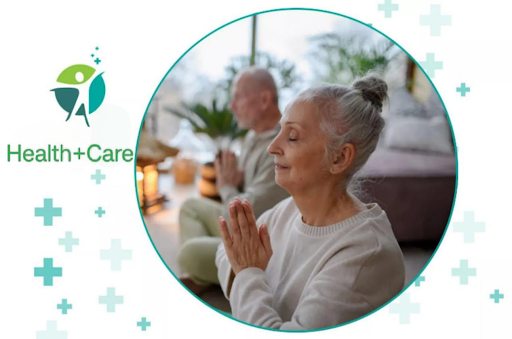

- Home
- Wellbeing+
- Calm Your Pressure: Natural Wa ...
High blood pressure, or hypertension, is often called the “silent killer” — and for good reason. It quietly affects more than 1.3 billion people worldwide, frequently showing no symptoms until serious health problems like heart attacks or strokes arise. With almost half of those affected unaware of their condition, it’s time to bring hypertension out of the shadows and into focus.
The good news? There’s a natural, holistic way to calm your pressure — by combining meditation with smart lifestyle choices. Let’s explore how.
Understanding High Blood Pressure and Its Types
Hypertension isn’t just one condition; it comes in two important varieties:
- Primary (essential) hypertension develops gradually and is influenced by factors like genetics, diet, stress, and physical inactivity. It accounts for 90–95% of cases.
- Secondary hypertension results from identifiable medical causes — such as kidney disease, hormonal imbalances, or sleep apnea — and can sometimes be reversed by treating those underlying issues.
Knowing your type matters because it shapes the best way to approach treatment.
What Puts You at Risk?
While genetics play a role, your daily habits have a tremendous impact. Diets high in salt and processed foods, lack of exercise, smoking, excessive alcohol, and chronic stress stiffen arteries and push blood pressure upward. Medical conditions like kidney or thyroid disease can also contribute.
Understanding your risk factors can motivate you toward the changes that truly count.
Blood Pressure Numbers: What Do They Mean?
Here’s a quick guide based on the latest 2024 guidelines:
|
Category |
Systolic (top) mmHg |
Diastolic (bottom) mmHg |
|---|---|---|
|
Normal |
≤ 120 |
< 80 |
|
Elevated |
120-129 |
< 80 |
|
Stage 1 Hypertension |
130-139 |
80-89 |
|
Stage 2 Hypertension |
≥ 140 |
≥ 90 |
|
Hypertensive Crisis |
> 180 |
> 120 |
Even mildly raised blood pressure deserves attention since it ups cardiovascular risk.
The Hidden Patterns of Blood Pressure
Blood pressure doesn’t always tell the whole story during a quick clinic visit. Some experience:
- White-coat hypertension: Elevated in clinic but normal at home due to nerves.
- Masked hypertension: Normal in clinic but high during daily life — potentially dangerous if unnoticed.
- Nocturnal hypertension: Failure of blood pressure to drop during sleep, which can strain the heart and kidneys.
Home monitors and 24-hour ambulatory devices help reveal these hidden truths.
Meditation: More Than Just Calmness
Meditation isn’t simply about finding peace — it shapes the very mechanics of your cardiovascular system:
- It reduces stress hormones like cortisol and adrenaline that constrict blood vessels.
- It enhances the parasympathetic nervous system, promoting relaxation and balanced heart rhythms.
- It improves blood vessel flexibility, making arteries less stiff and more responsive.
From my own journey since 1985, regular meditation and yoga have kept my blood pressure in a healthy range — often without needing medications.
Science Backs It Up
- A 2013 American Heart Association review highlighted meditation for lowering blood pressure.
- Transcendental Meditation (TM) was shown to reduce systolic pressure by about 10 mmHg in clinical trials.
- A 2025 meta-analysis found yoga reduced systolic and diastolic pressure by nearly 8 and 5 mmHg respectively.
- Pranayama breathing techniques demonstrated impressive drops in systolic BP — as much as 20 mmHg.
- Yoga nidra, a guided relaxation practice, can bring immediate blood pressure declines in minutes.
Why Meditation Works
Practices like mindfulness and mantra chanting activate the body’s “rest and digest” system, calming the nervous system and stabilizing heart rate variability. This physiological reset helps break the vicious cycle of stress-induced hypertension.
Meditation Styles to Try
- Mindfulness-Based Stress Reduction (MBSR): Focuses on present moment awareness to ease tension.
- Transcendental Meditation (TM): Uses mantra repetition, effective especially for early-stage hypertension.
- Beejakshara Mantra Meditation: Chanting sound vibrations like “Om” influence relaxation.
- Guided Breathwork: Deep breathing exercises calm the sympathetic nervous system.
- Loving-Kindness Meditation: Fosters emotional well-being, indirectly benefiting blood pressure.
Lifestyle Habits That Complement Meditation
To maximize benefits, weave these habits into your daily routine:
- Follow the DASH diet rich in fruits, veggies, and whole grains.
- Reduce sodium to dial down your blood pressure 5–6 mmHg.
- Move regularly — even moderate exercise lowers systolic pressure by 5–8 mmHg.
- Shed excess weight for noticeable BP improvements per kilogram lost.
- Quit smoking and limit alcohol consumption.
- Manage caffeine intake thoughtfully.
- Prioritize quality sleep, which supports heart health.
Bringing It All Together
Lowering your blood pressure naturally is a journey — not a sprint. The combination of healthy foods, regular movement, stress-reduction through meditation, and good sleep yields results comparable to medication for many.
By embracing these small but consistent changes, you empower your heart and mind to thrive.
FAQ: Hypertension Through Meditation
What are the main symptoms of gastritis and gastropathy?
Yes, many studies show meditation lowers systolic pressure by up to 10 mmHg by reducing stress and improving vascular function.
Which is better: meditation or medication?
Meditation complements medication and may reduce the amount needed, but you should never stop prescribed drugs without doctor approval.
How often should I meditate to see benefits?
Daily practice, even 10–20 minutes, is best for sustained improvements.
Can diet alone control hypertension?
Diet plays a crucial role but combining it with exercise, meditation, and lifestyle changes offers the best results.
What is the DASH diet?
A dietary approach emphasizing fruits, vegetables, lean proteins, and low sodium designed to lower blood pressure.
Can stress really affect blood pressure?
Absolutely. Chronic stress increases hormones that constrict blood vessels and raise BP.
At Dailywell, we believe managing hypertension through mindfulness and lifestyle is achievable and empowering. Start small, stay consistent, and listen to your body — your heart will thank you.
Recent Posts
- Obsessive-Compulsive Disorder (OCD): A Human-Centered Exploration
- Protecting Your Gut: The Dailywell Guide to Understanding Gastritis and Gastropathy
- Comprehensive Insights into Rectal Cancer: Signs, Treatments & Future Perspectives
- Calm Your Pressure: Natural Ways to Control Hypertension Through Meditation and Lifestyle
- Understanding Acne: Causes, Effects, Treatments & Natural Remedies for Clear, Healthy Skin
Recent Comments
Archives
Search
All Tags
Search
Gallery






Recent Post
Obsessive-Compulsive Disorder (OCD): A Human-Centered Exploration
- January 24, 2021
- 4 min read
Protecting Your Gut: The Dailywell Guide to
- January 24, 2021
- 7 min read
Comprehensive Insights into Rectal Cancer: Signs, Treatments
- January 24, 2021
- 6 min read





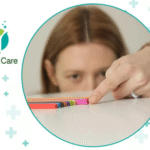
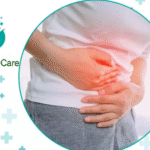
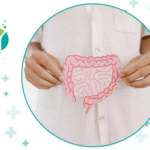



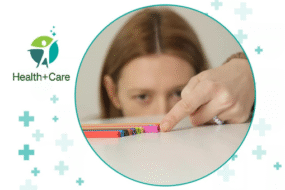
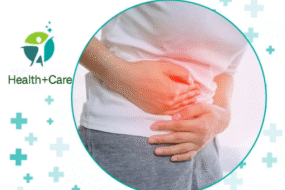
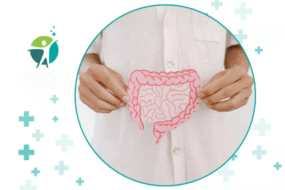
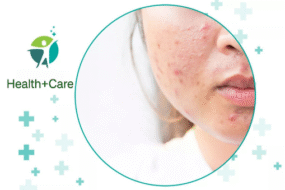
No Comments